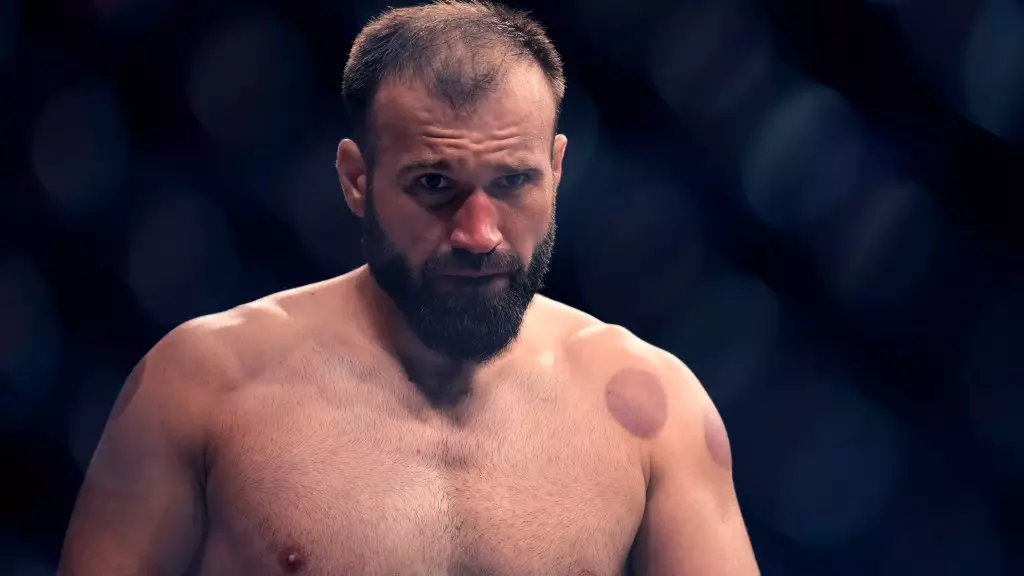The world of mixed martial arts (MMA) is fraught with rigorous regulations, particularly when it comes to anti-doping measures. Recent developments involving Russian fighter Azamat Murzakanov have once again highlighted the challenges fighters face in navigating these rules. Murzakanov has agreed to a six-month suspension due to a doping violation related to a contaminated supplement, despite evidence demonstrating that his performance was not influenced by the prohibited substance. This case invites a closer examination of the anti-doping framework in combat sports, the implications for athletes, and the realities behind banned substances.
Murzakanov, who boasts an impressive undefeated record of 14-0 in MMA and 4-0 in the UFC, found himself in hot water after testing positive for LGD-4033, a substance prohibited under the UFC’s extensive anti-doping criteria. The critical factor to note is that the substance’s presence was linked to a tainted dietary supplement he allegedly consumed prior to his pre-fight test for UFC 308. Following an extensive investigation, it became clear that this banned substance was not included in the product label, indicating a significant gap in quality control and regulation within dietary supplements consumed by athletes.
While the Combat Sports Anti-Doping (CSAD) organization determined that the detected levels of the substance in both the supplement and Murzakanov’s system were negligible and would not confer a performance advantage, the repercussions for the fighter were severe. The CSAD determined a 180-day suspension was warranted due to the fact that this marked Murzakanov’s second violation following an earlier suspension in 2019. Thus, his consequences were automatically doubled under the guiding policies, showcasing how the system may sometimes seem harsh even when mitigating circumstances exist.
The incident raises pivotal questions regarding dietary supplements and the regulation, or lack thereof, that surrounds them. Many athletes use supplements to enhance performance, recovery, and overall health, but these products often carry significant risk. The lack of regulation in the supplement industry means that athletes may unknowingly consume banned substances. This highlights a dual responsibility: the obligation of fighters to be vigilant about the products they use and the necessity for manufacturers to ensure consistent quality assurance procedures.
Murzakanov’s case is especially instructive because it illustrates the necessity for third-party testing of supplements. Athletes often receive education about using only those supplements that have been verified by independent organizations. Those who neglect this advice—or who inadvertently consume untested products—face harsh penalties, as demonstrated by Murzakanov’s suspension and the reality he may face nearly a year between competitive bouts.
This situation also supports an ongoing conversation about the integrity of sports and the implications of doping on that integrity. Anti-doping agencies strive to maintain a level playing field, but when infractions like Murzakanov’s stem from external, uncontrollable factors such as tainted products, it raises a fundamental discussion about fairness. Should fines and suspensions target athlete intent or restrict their opportunities when they are victims of circumstances outside their control?
Murzakanov’s situation is not an isolated incident but part of a larger narrative that underscores the balance needed in sports regulation. As the UFC and other governing bodies refine their regulations, they’ve started to recognize cases like Murzakanov’s, potentially prompting revisions to prevent infringement punishments from overshadowing a fighter’s integrity and commitment to fair play.
Moving forward, better education for athletes about supplement use, combined with more robust testing measures for dietary products, will be vital to reducing doping-related incidents in MMA. The current case serves as a learning opportunity for the entire sport, not just for Murzakanov, monologuing the necessity of systemic changes that mitigate the risks posed by contaminated supplements while preserving the reputation of fighters and the sport itself. In an industry that buys into the narrative of ‘clean sport,’ stories like Azamat Murzakanov’s can help shed light on the critical adjustments needed for a fair and equitable competitive environment.

